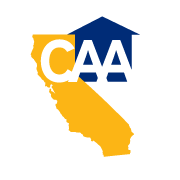The impacts of the coronavirus have had a significant effect on nearly all of our lives. Financially, some people have lost jobs or experienced a sudden drop in income. Universal Bank is dedicated to continually sharing resources with our community to help ease the strain on your budget.
AB 3088 – COVID-19 Tenant Relief Act of 2020 was signed by Governor Newsom on August 31, 2020. The new state law provides that residential tenants who are unable to pay rent during the COVID-19 emergency cannot be evicted for rents that became due between March 1, 2020, and January 31, 2021, if certain requirements are met. Please see the below COVID-19 Tenant Relief Act of 2020 provided by California Apartment Association (CAA) for details.
There are many additional educational resources available. The state of California has created an educational website. The county of Los Angeles has also created an educational website.

AB 3088 – COVID-19 TENANT RELIEF ACT OF 2020
Evictions Under the COVID-19 Tenant Relief Act
- Extends notice period from 3 to 15 days (not including weekends or holidays) to provide tenant additional time to either pay or provide declaration of hardship in response to landlord’s notice to pay rent or
- Tenant cannot be evicted for nonpayment due to a COVID-19 related hardship for rent due between March 1 – August 31, 2020, if tenant returns declaration of hardship under penalty of perjury within 15-day notice
- Tenant cannot be evicted for nonpayment due to a COVID-19 related hardship for rent due between September 1, 2020 – January 31, 2021, if tenant returns declaration of hardship under penalty of perjury within 15-day notice period and pays 25% of the missed rent payments for that period by January 31,
- Higher income tenants (over $100K household income or over 130% of median household income) must provide some form of documentation, as specified in the
- Tenants can be evicted beginning October 5, 2020 if they fail to return COVID-19 related hardship declaration to
- Applies to all residential rental tenants and mobile home residents, including single-family home and ADU
- Eviction cases for just causes other than non-payment (e.g., nuisance) can begin September 2,
- Just cause under AB 1482 (Tenant Protection Act of 2019) is extended to all tenants until February 1, Delays any eviction cases for non-payment (not due to COVID-19 hardship) until October 5, 2020.
- Amends existing retaliation law to prohibit landlord from evicting a tenant for a reason other than non-payment of rent in retaliation for having unpaid COVID-19 rental
Tenants Still Responsible for Paying Unpaid Amounts to Landlords
- If the tenant complies with the above, any remaining unpaid rent due between March 1, 2020 – January 31, 2021, is not a ground/basis for eviction, but is still owed to the landlord as a form of consumer debt
- Small claims court jurisdiction is temporarily expanded to allow landlords to recover these
- Landlords may begin to recover this debt on March 1,
Other Protections for Tenants
- Requires landlords to provide hardship declaration forms in a different language if rental agreement was negotiated in a different language, consistent with existing
- Provides tenants a backstop in an eviction case if they have a good reason for failing to return the hardship declaration to the landlord within 15
- Requires landlords to provide tenants a notice detailing their rights under the
- Eviction judgments in non-payment of rent cases filed between March 4, 2020 – January 31, 2021, are subject to masking and are not publicly available, regardless of the Sunsets February 1, 2021.
Statewide Consistency and a Pause on Local Measures
- Existing local ordinances remain in place until they Local actions that occur after August 19, 2020 cannot take effect before February 1.
- If an ordinance that establishes a time-period for repayment, that repayment period must begin (for unpaid rent due between March 1, 2020 and January 31, 2021) on March 1, 2021, unless the ordinance specifies an earlier
- Clarifies that nothing in the Act affects a local jurisdiction’s ability to adopt an ordinance that requires just cause, consistent with state law, provided it does not affect payments due between March 1, 2020 and January 31,
Protections for Small Landlords
- Extends the Homeowners’ Bill of Rights’ anti-foreclosure protections to small landlords (1-4 units, non-owner occupied) if landlord is an individual, tenant moved in prior to March 4, and tenant fails to pay rent due to loss of
- Provides accountability and transparency provisions to protect small landlord borrowers who request CARES-compliant forbearance; authorizes a borrower who is materially harmed to file a
Penalties on Landlords Who Do Not Follow Court Eviction Process
- Adds a new penalty of between $1,000 and $2,500 against landlords who resort to self-help (i.e., locking the tenant out, throwing personal property out onto the curb, shutting off utilities) to evict a tenant, rather than going through the required court process. Sunsets February 1,
Entire Act Sunsets February 1, 2025 (nothing in the bill applies to rent due after January 31, 2021)